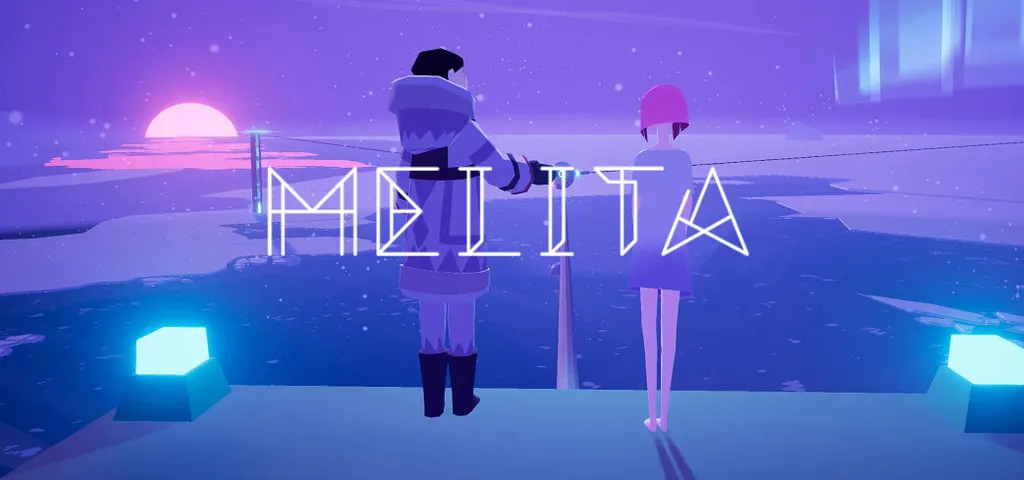One of the biggest downsides of our increasingly always-on, gotta-have-it-now society is that emerging technologies are often declared dead before they are even fully born. Yet on the heels of another “VR Is Dead” piece comes the Venice Biennale — one of the top film festivals in the world, complete with a VR Island showcasing over 20 pieces of content. The island’s lineup will be diverse, with VR pieces from all over the world, and content that ranges from joyful entertainment to thoughtful and empathy-provoking documentaries. One company, Future Lighthouse, is there with three pieces.
Based in Madrid, the team is no stranger to critical acclaim — one of their pieces, Beefeater XO, was the first VR piece to be nominated for a Tribeca X Award at this year’s festival. But the three pieces showing at Venice showcase the range of possibilities not just for its work, but for VR as the medium moves forward.
The first piece, MELITA, is animated and the first of what will eventually be a trilogy — one of Future Lighthouse’s goals at Venice, according to co-founder Steven Posner, is to raise funds to complete the rest of the series. MELITA will soon be released first and only on the Oculus platform.
“What really sets MELITA apart from other VR experiences is a combination of cinematic movement, character development, actors, and dialogue,” said Nicolás Alcalá, director MELITA and CEO of Future Lighthouse. “The experience pushes the boundaries of VR cinematic narratives and visually appears as though the viewer has been placed inside any of your favorite animation films”
The second, Snatch, is an off-shoot of Sony Pictures Television’s Crackle programme which is based on the Guy Ritchie comedy of the same name. The experience transports viewers into the middle of a safe-cracking diamond heist alongside Grint, Luke Pasqualino, Lucien Laviscount, and Phoebe Dynevor. In it, the viewer is in a basement with a pack of goons as they try to crack a safe — and toward the end, when the code is revealed, the user is asked to input it before time runs out.
“Rupert, Luke and the rest of the cast have created memorable characters who truly resonated with our viewers, and we believe audiences will enjoy interacting with them in an entirely different way through Virtual Reality, and then following their adventures in season two of Snatch,” said Eric Berger, Crackle, GM and EVP, Digital, Sony Pictures Television Networks.
And finally, The Argos File is a futuristic cyberpunk piece where humans are implanted with memory chips and the last moments of their lives are used to try to solve crimes. What’s even more impressive and ambitious about The Argos File is it’s only a proof of concept and Future Lighthouse plans to kick off financing with a crowd equity campaign and seek additional industry partners. “While being just a proof of concept on paper, I think the film delivers a fully realized world, a fresh, bold pace, and several storytelling techniques that just haven’t been tried before” said Josema Roig, the project’s director.
“It’s funny that the entertainment industry is starting to get excited about VR just as the VR industry is starting to get cynical,” says Posner. “People tend to forget that we are only in year two of all of this being commercially viable, and there were a lot of inflated and unrealistic expectations.”
The three pieces he is taking to Venice are all the forefront of what VR could be as it moves forward. The format has always been an amazing vehicle for storytelling, but many directors forgot that the thing that sets VR apart is the ability to involve the user directly in determining the course of the story. In the case of Snatch, the experience is an active one, where viewers are compelled to beat the clock and enter the code — the outcome rests on them, an experience many are not used to. While passive experiences in VR can be enjoyable, the active experiences are the ones where the full power of the medium is on display.
As for Future Lighthouse, they have a busy fall planned, with a horror series in partnership with Oculus and continued work with a Spanish TV series called Ministry of Time. But for new, they’re happy to be on an island, surrounded by headsets and creating the future.


























